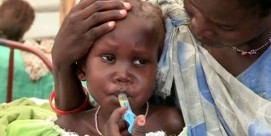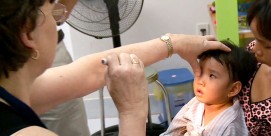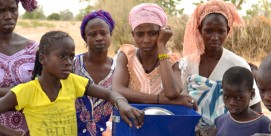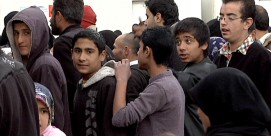David Cortright: Justice for Libya?
Does the international intervention in Libya meet just war standards? Certainly the cause of protecting civilians is just. The air strikes have slowed Gaddafi’s military advances and may help to prevent further mass killing of civilians. The action has proper multilateral authority from the Arab League and the United Nations Security Council, but Congress has not authorized American involvement. Any continuing US military involvement must have the approval of Congress.
What about the probability of success? No end game is in sight, and it’s not clear how the use of military force will contribute to a stable political settlement. The lack of unity among the intervening states does not augur well for effective or “successful” use of force.

Ambiguity exists regarding the purpose of the intervention. Officially the goal is to prevent the mass killing of civilians. The UN Security Council resolution states that the Gaddafi regime’s “widespread and systematic attacks” against civilians “may amount to crimes against humanity” and demands “an immediate ceasefire and end to all attacks against civilians.” The Arab League statement says the Gaddafi regime has lost its sovereignty because of its attacks against civilians. It urges the Security Council to “shoulder its responsibilities” in imposing a no-fly zone and creating “safe zones” in the country.
France and other countries assume that the political end game in Libya will include a major role for the current rebel movement and its governing council. Little is known, however, about the political character of this movement. It is based on tribal groups in the eastern part of the country, which creates a risk that the international intervention will favor these groups over those in the central and western parts of the country. This could exacerbate ethnic tensions and prevent the consolidation of a tribally balanced and inclusive new government. No mechanism exists for meeting these challenges and helping to assure a more balanced and democratic future for Libya.
The dangers here are huge for the United States and the other states involved. If the campaign does not produce quick results there will be pressures to escalate. If the operation falters and the rebels are not able to oust the regime, the US and its allies will be blamed for a failure that was not theirs in the making.
Other options are available for saving lives. As Notre Dame political science professor Robert Johansen has recommended, the Security Council should establish protected humanitarian corridors near Libya’s borders. This would help the delivery of humanitarian aid and would provide a location where defectors could safely qualify for amnesty from future criminal prosecution.
Steps also can be taken to strengthen targeted sanctions against Gaddafi and his family and to support the International Criminal Court as it prepares indictments against senior Libyan officials who do not defect and are responsible for mass atrocities.
The challenge is to use just means in achieving the declared just ends.
David Cortright is director of policy studies at the Kroc Institute for International Peace Studies at the University of Notre Dame.







